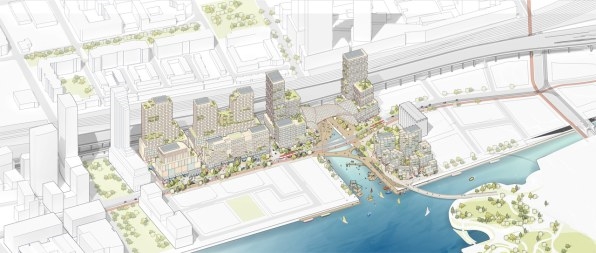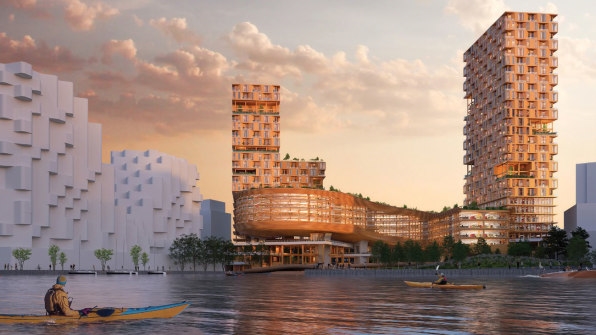Sidewalk Labs, an Alphabet subsidiary focused on urban innovation, announced today that it is abandoning its plans to build a sustainable smart city in Toronto, citing economic uncertainty caused by the coronavirus.
“It has become too difficult to make the 12-acre project financially viable without sacrificing core parts of the plan we had developed together with Waterfront Toronto,” Dan Doctoroff, CEO of Sidewalk Labs, explained in a statement.

The Quayside project on Toronto’s waterfront was announced in 2017 to major fanfare. Sidewalk Labs was planning to spend nearly $1 billion on the project, a public-private partnership that had come to represent a vision for a sort of high-tech utopia. (Since then there have been other similar concepts, like Toyota’s Woven City.)
The Quayside plan included all-timber high-rises in a mixed-use neighborhood that would have 3,000 housing units (a third of which would have been affordable), retail and commercial space, and schools. It emphasized sustainable practices, with plans to implement solar power and geothermal heating and cooling, a “smart waste user interface” to encourage recycling and divert waste from landfills, and wireless internet for everyone.

The project had been criticized for a lack of transparency and had raised significant data and privacy concerns. The plan still didn’t have final approval from the government; May 20 was the deadline for Waterfront Toronto to determine if the project would go forward, according to The Star.
Sidewalk Labs’ partner in the project, Waterfront Toronto, told Fast Company in a statement that it will use what it’s learned from the project to address urban challenges facing the city, and that it “remains firmly committed to pursuing a next-generation community in Toronto.”
“Today there is global financial uncertainty, but Waterfront Toronto has confidence in the city’s economic future, and will take the long view when making real estate and development decisions on Toronto’s waterfront,” said Waterfront Toronto Board Chair Stephen Diamond in a statement.
“While we won’t be pursuing this particular project, the current health emergency makes us feel even more strongly about the importance of reimagining cities for the future,” Doctoroff said. But for now, it seems, the uncertainty of the present has put the future on pause.
(22)